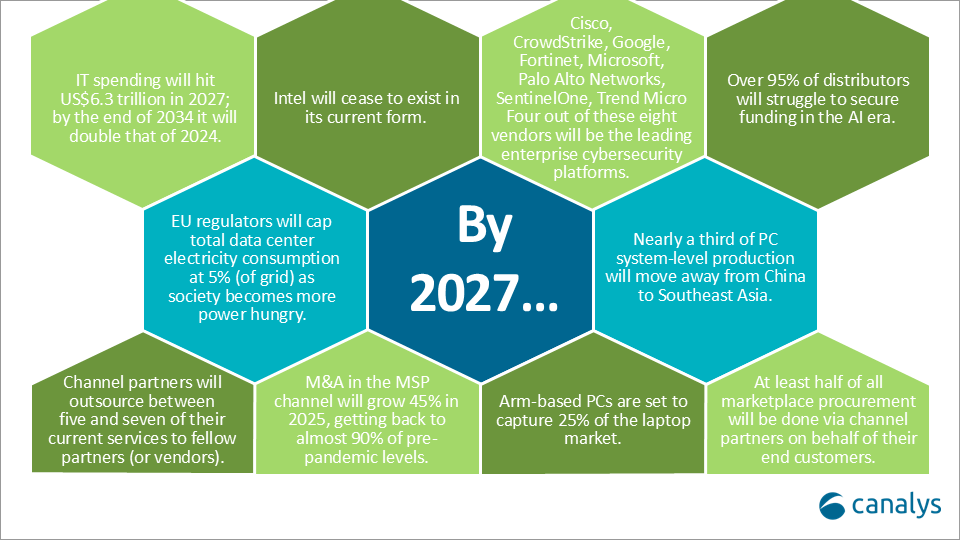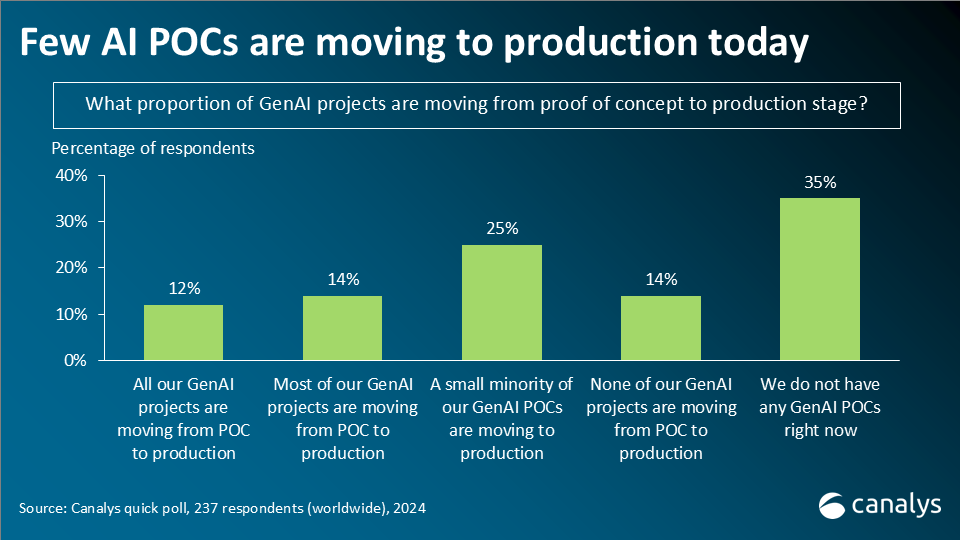Expanded Scale and Leadership in B2B: From R&D to ROI
With a combined permissioned audience of 50+ million professionals, TechTarget and Informa Tech’s digital businesses have come together to offer industry-leading, global solutions that enable vendors in enterprise technology and other key industry markets to accelerate their revenue growth at scale.

Federal pressure drives some GSIs and vendors to abandon DEI in response to President Trump’s executive orders
DEI proved divisive in the build-up to the 2024 US presidential election, with some vendors quietly deprioritizing DEI last year. However, President Trump’s second term has ushered in a new wave of public DEI changes, especially within the tech sector. Vendors such as Amazon and Meta halted DEI commitments ahead of the inauguration, and following President Trump’s recent executive orders targeting DEI, other industry titans are following suit – though not all.


Amazon and Meta move first to scrap DEI initiatives
President Trump's inauguration saw a prominent representation of tech titans, especially Tesla, Amazon, and Meta. For these vendors, the President’s commitments to AI investments and the promise of increased technology spend under Musk’s newly established Department of Government Efficiency (DOGE) are welcome.
Before the administration’s executive orders impacting DEI initiatives, Amazon announced in early January that it would be “winding down outdated programs and materials” around DEI. It later purged mentions of DEI from its annual report. Meta also terminated its DEI policies, highlighting a “shifting legal and policy landscape” while describing DEI as a “charged” term.
President Trump leverages federal control to pressure corporations to comply with his anti-DEI order
President Trump has signed several executive orders seeking to dismantle DEI in federal agencies and within the private sector. These orders immediately put federal DEI staff on leave, with the aim of terminating their employment.
Notably, the order titled “Ending Illegal Discrimination and Restoring Merit-Based Opportunity” instructs federal agencies to identify private sector companies with DEI policies and report them for civil investigations over alleged discrimination.
Although there is not an outright ban on corporates’ DEI initiatives, the order places pressure on large companies with significant business in the federal sector. Most vendors and large partners have public DEI goals. However, these goals now put firms at risk of falling out of favor with federal buyers unless they abandon public DEI commitments and initiatives addressing social inequalities internally and in their value chains.
Google complies as consulting titans step in line
In February, responding to the US Government’s executive orders, Google announced the scrapping of its DEI hiring and representation goals, citing the need for Google to comply with recent court decisions and US executive orders. It also removed references to DEI in its investor reports and removed observances such as Black History Month and Holocaust Remembrance Day from Google Calendar.
Accenture followed suit, announcing the retirement of its DEI goals while also scrapping career development schemes for underrepresented demographics. Days later, fellow GSI titan Deloitte announced the termination of its DEI goals, DEI transparency reporting and DEI programs. It cited the need to comply with the executive order, both as a private company and a government contractor. Both Accenture and Deloitte generated over US$3B in contract revenue from the US federal government last year, lending credence to their prompt acts to comply.
KPMG has also followed Deloitte and removed DEI reports from its website and announced the end of its goals to have partners/MDs from under-represented groups. It also cited the executive orders and compliance requirements as a federal contractor, demonstrating its urgency to comply as KPMG still struggles to grow.
Geographical splits are emerging worldwide on DEI retrenchments
The DEI retrenchments of Deloitte and KPMG are limited to their US businesses, unlike Accenture, whose decision applies globally. Following the announcement from its US counterpart, Deloitte UK’s CEO emphasized the DEI commitments and policies will not change for the UK LLP, and its Australian operations also confirmed its diversity targets will remain. Deloitte, EY, KPMG and PwC each operate as separate legal entities in each market, shielding non-US branches from President Trump’s orders.
At present, only a minority of vendors and GSIs are halting DEI pledges – in fact, some are resisting the pressure. Last month, Apple notably defended its DEI efforts by asking investors to vote against a proposal to scrap its DEI policies. IBM is similarly holding the line against an anti-DEI shareholder proposal – but as a vendor with US$1B+ in federal business and longstanding government contracts, the pressure is especially immense.
HPE’s CEO Antonio Neri notably reaffirmed HPE’s DEI commitments in 2024 – while recognizing implementation challenges in turning DEI values into action among middle management. Moreover, Lenovo’s Chief Diversity Officer recently reaffirmed the vendor’s commitments to DEI, highlighting the business case.
GSIs that once capitalized on DEI services are now conflicted
The U-turns from GSIs are especially notable as these companies have delivered and monetized professional services to help clients embed DEI in their corporate strategies and culture. Across the ecosystem, legal and DEI teams are grappling with potential compliance challenges or federal revenue threats that could arise from continuing to pursue DEI, as well as the risks of future lawsuits resulting from DEI. Going forward, corporates’ approaches to DEI will become increasingly country and region-specific to comply with local regulations and political climates.
Long-term implications of DEI walkbacks
While tech titans await the technology spend promised by DOGE, the wider industry is recalibrating to align with the new administration. The priority is not only to win new investment (especially around AI), but also to retain clients in the turbulent federal market.
GSIs’ DEI walkbacks come at a time when most consulting giants find themselves vulnerable financially, with little if any annual growth – last year, the top 20 GSIs’ revenue grew by only 2.2%, down from 6% in 2023 and 11.4% in 2022. Amid new executive orders, leaders at GSIs are now perceiving DEI strategies as risks to federal support, and thus short-term financial stability. Federal agencies’ IT budgets remain limited, growing less than 1% this year – the lowest growth in over a decade. The vast majority of federal spending is expected in federal Q4 (July-September), and ahead of this, vendors and GSIs are prioritizing continued support from federal agencies. This is resulting in the removal of DEI initiatives among some vendors.
Diversity is integral to responsible AI
As the US heads in one direction, Europe is moving in the opposite (with more regulation expected), this brings inevitable challenges for organizations to remain compliant everywhere and strike a balance between the competing priorities.
With the era of AI upon us, the need for AI teams to be more diverse will become increasingly important, as ethical and responsible AI necessitates diversity of gender, race, ethnicity and more. Simultaneously, US colleges are cutting back on DEI efforts, potentially limiting the pipeline of diverse talent into the industry as AI evolves. Ultimately, there is an ongoing challenge for many technology firms as they continue to shape their AI offerings and models, while simultaneously cutting back on DEI initiatives.







